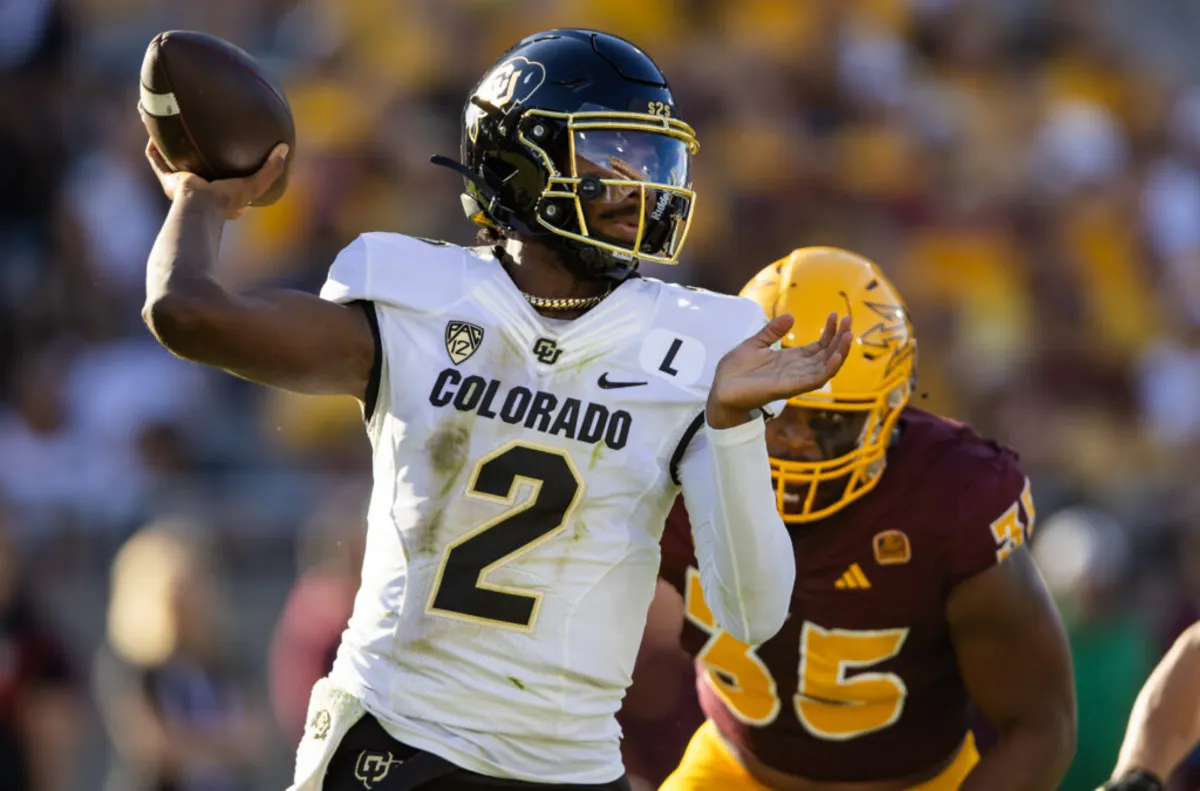
The NFL draft can be unpredictable, and rarely has a fifth-round pick captured the spotlight quite like Shedeur Sanders did this past weekend. Falling to the 144th pick left many fans and analysts perplexed, especially considering the buzz surrounding his potential as a top-tier quarterback. This unexpected drop came after whispers suggested that Sanders’ stock had declined leading up to the draft, raising questions about what teams really thought of his abilities and character.
The narrative surrounding Shedeur Sanders is not new; the NFL has a long history of selecting players with questionable backgrounds in earlier rounds. However, it appears that teams collectively decided that Sanders’ skill set was not worth the perceived off-field distractions he and his family might bring. As we analyze the aftermath of the draft, more evidence supporting this view is surfacing.
Before the fourth round commenced, reports surfaced indicating that Sanders was not a viable first-round selection due to a lack of elite traits. Moreover, it was suggested that teams were wary of inviting a “circus” atmosphere by drafting him. A subsequent report highlighted that Sanders faced challenges during the pre-draft process, particularly during interviews with coaches. Veteran quarterback and media personality Boomer Esiason shed light on this situation during his show, stating that numerous teams had removed Sanders from their draft boards due to his attitude. He noted that ownership played a significant role in these decisions, with concerns about perceived entitlement being a central issue.
Adding another layer to the narrative, Deion Sanders, Shedeur’s father and renowned NFL player, reportedly suggested that intervention might be necessary to steer his son away from certain teams. This situation did not help Shedeur’s draft stock. Initially, Sanders was considered a contender for the number one overall pick, but after evaluations of other quarterbacks like Cam Ward, his prospects fell dramatically. The involvement of coaches in the decision-making process was significant, influencing teams like the New York Giants, who were reportedly hesitant about Sanders due to his brash demeanor during interviews.
As the draft unfolded, it became increasingly clear that several teams were unwilling to risk selecting Sanders. The New Orleans Saints, despite facing QB uncertainty, opted for Tyler Shough at pick 40 instead. Following their lead, the Seattle Seahawks and the Cleveland Browns also chose to go in different directions, selecting quarterbacks Jalen Milroe and Dillon Gabriel, respectively. The Browns, however, later made a trade to acquire Sanders in the fifth round, possibly to move past their earlier mistakes concerning quarterback Deshaun Watson. This created a competitive environment for the starting job among Sanders, Gabriel, Joe Flacco, and Kenny Pickett.
The Giants’ strategy was equally intriguing. They traded three Day 2 picks to the Texans for Jaxson Dart after conducting extensive research on Sanders. Although they initially showed more interest in Sanders than Dart, head coach Brian Daboll reportedly favored the Ole Miss passer. The Giants considered moving up for Sanders had Dart been unavailable, highlighting the complexity of their decision-making process. This culminated in a fascinating narrative as they navigated the draft landscape.
As reports of dissatisfaction with Shedeur Sanders’ pre-draft tactics continue to emerge, his historic slide in the draft starts to make more sense. The former quarterback from Colorado and Jackson State may have overplayed his hand during the interview process, a misstep that could be referenced in future drafts. Moving forward, Sanders will have the opportunity to prove detractors wrong, especially as he competes for a starting position against Gabriel, who was drafted 50 spots ahead of him. The upcoming seasons will be crucial for Sanders as he aims to reshape his narrative within the league.